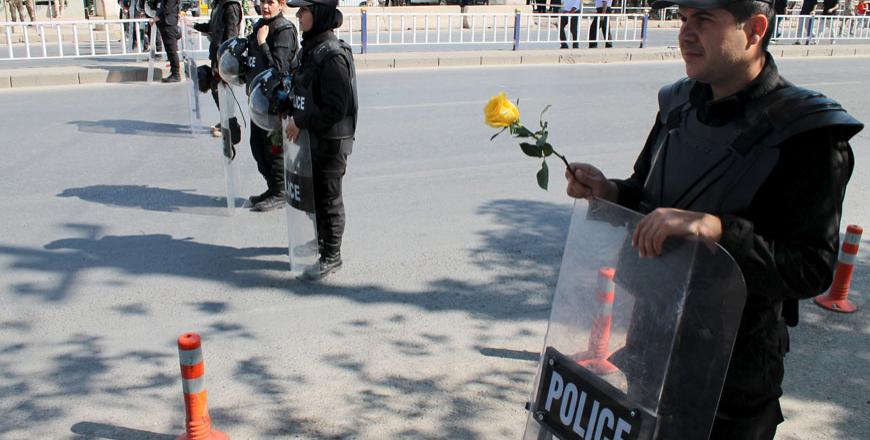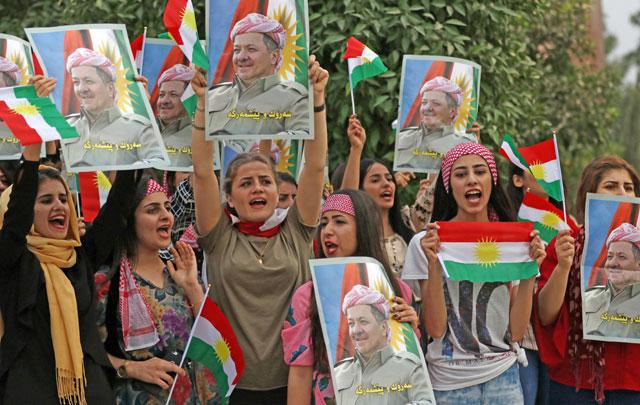You are here
Iraqi Kurdish PM appoints new ministers after expulsions
By Reuters - Oct 28,2015 - Last updated at Oct 28,2015
ERBIL, Iraq — The prime minister of Iraq’s Kurdistan region has appointed ministers to replace four who were unilaterally expelled from the Cabinet by his party during the worst political crisis in years.
The dominant Kurdistan Democratic Party (KDP) suspended the four ministers from their posts earlier this month after accusing the Gorran movement to which they belong of instigating violent unrest for political gain.
The expelled ministers were replaced on Tuesday with KDP politicians in what senior Gorran official Mohammed Tofiq described as an “illegal and illegitimate” move.
The new appointments by Prime Minister Nechirvan Barzani entrench the KDP’s dominance over the affairs of the autonomous region, which has emerged as a key ally of the US-led coalition fighting the Daesh terror group.
Kurdistan Regional Government (KRG) spokesman Safeen Dizayee said the four Gorran ministers were technically considered to be on leave, and that their reinstatement would depend on political negotiations between the parties. The four new ministers have been appointed on an “acting” basis, he said.
The KRG was formed as a coalition government between the region’s five main parties, but relations between them came under increasing strain over the presidency of Massoud Barzani, who is also head of the KDP.
Gorran was one of four parties pushing for a reduction of the president’s powers as a condition for extending his mandate, which expired in August, but the KDP has resisted.
The Ministry of Peshmerga will now be led by Karim Sinjari, who is currently interior minister. Minister of Planning Ali Sindi was appointed to head the Ministry of Trade and Industry. Pishtiwan Sadiq will take over the Ministry of Endowments and Religious Affairs.
The Ministry of Finance will run by the expelled minister’s deputy, and the head of the Investment Board from Gorran has also been replaced.
At the height of the crisis, the KDP prevented the speaker of the region’s parliament, who is from Gorran, from entering Erbil province, which it controls. It also closed down the offices of two critical TV channels, one of them affiliated with Gorran.
“The KDP claims to be rights-respecting but has a history of shutting down critical voices,” said Joe Stork, deputy Middle East director for Human Rights Watch. “Barring elected members of parliament from doing their job and forcing critical media staff out of the governorate is a new low.”
Related Articles
ERBIL — The prime minister of Iraqi Kurdistan removed four ministers from his Cabinet on Monday and the speaker of parliament was barred fro
BAGHDAD, Iraq — The semi-autonomous Kurdistan region of northern Iraq, which voted overwhelmingly in favour of independence last year in a r
BAGHDAD — Iraqi Kurdish political parties opposed to regional leader Masoud Barzani reported attacks on their offices in several cities over













